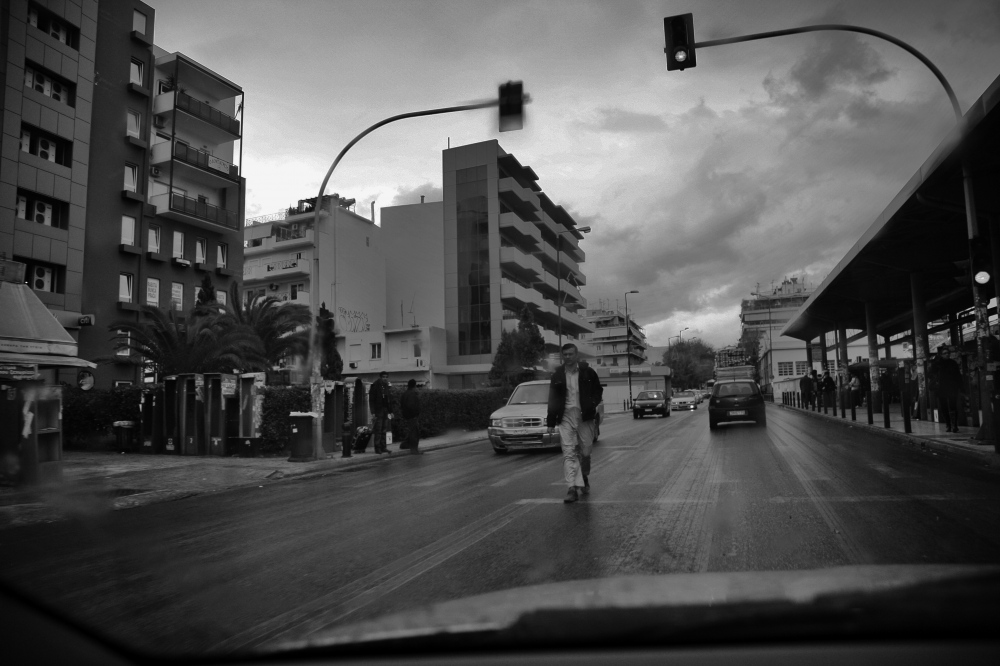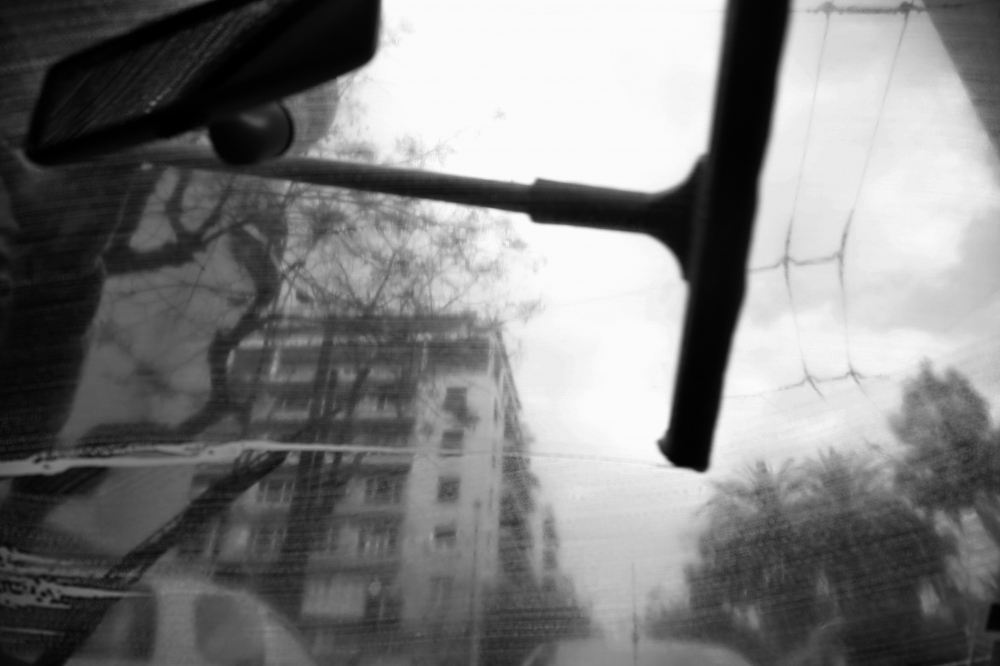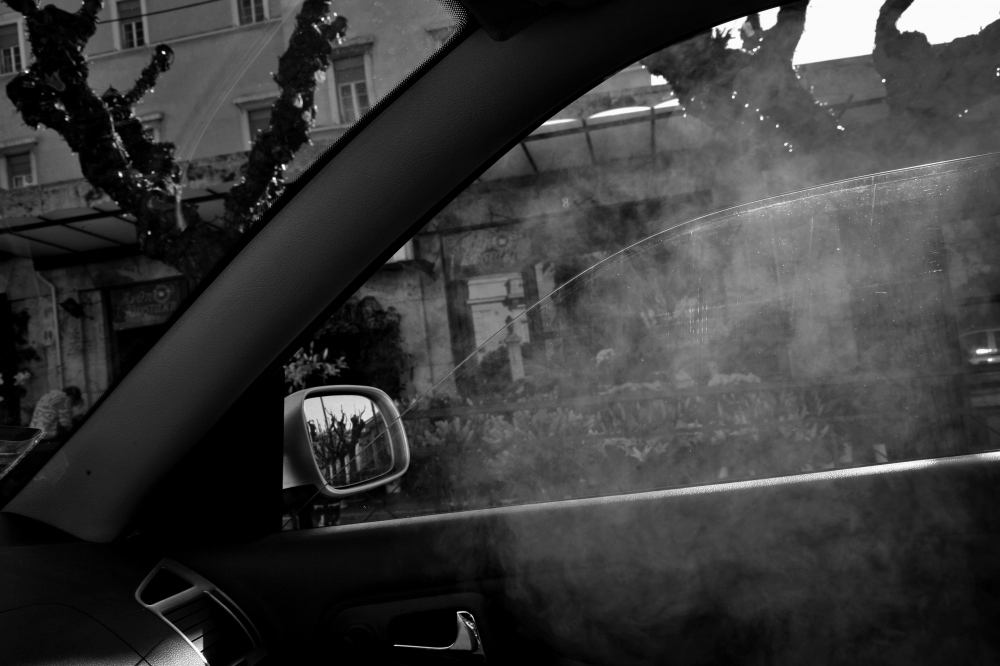"The car has become the carapace, the protective and aggressive shell of urban and suburban man" Marshall McLuhan
Post-industrial societies are societies of isolation, full of lonely entities, forming a spectacle that is both plethoric and verbose. The car as the dominant and fully individualized form of transportation is a symbol of the fully automated and intensified construction of everyday life. Through a process of fetishization it has become an extension of the flat that we live in. It is a closed space of privacy whose windows serve only in order to conform to or disobey with the traffic code signs. A steel cage inside of which the fantasy of escape falters.
People inside cars speak on their cell-phones, listen to the music, smoke and stop at red lights. They do not interact with the environment around them. Even when they find themselves stranded in a big avenue, it is only the sound of continuous car-horns that could interrupt their silence. You may take the same route every day for years, for example in order to go to work, know where you are going to brake before the big red road sign and how long you would have to wait until the light turns green but neither notice the alteration of the seasons and the alteration between night and day, nor the alteration of looks and glances in your mirror that never meet.
At the edge of this mirror there is a city with people that wait for the start of a new idea, people that are just waiting to affirm their ability to survive and people that do not expect anything. Especially, in the contemporary "city of crisis", this "nothingness" as a generalized lack of meaning, becomes a semiological trait, nesting in the glances of the people and being reflected in the cars' windscreens. In reality, it is the reflective other of the car. A city that is equally lonely as its drivers. It changes following the endless move of the wheel, limiting the space for the enclaves of popular production and culture, and putting in their place large chunks of concrete expressing the colorless and suffocatingly uniform post-modern architectural doctrine. This doctrine erases the history of the city and along with it the historical memory of its inhabitants thinks of space as property whose value goes up and down in the stock-market and not as the ability for the co-existence of actions, behaviors and cultures, and is more interested in the functionality of the buildings and not about the mental and emotional state of the people leaving inside them. It has become greyer, in an uninterrupted unity of the colors of the cars, of the closed shop shades, of the empty houses, of the horizon that moves away"¦ and it cracks only under the hard morning Mediterranean light that put pressures into the eyes of the drivers in a ceremonial welcoming of the new day.























